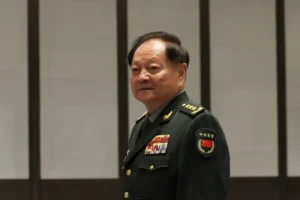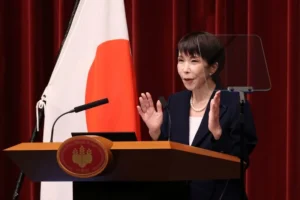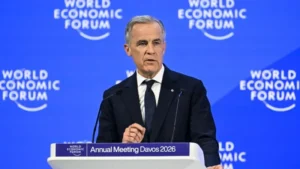Leaders from the European Union will visit Beijing for an important summit as global power dynamics continue to shift. At the heart of this meeting are rising trade and security tensions between China and the EU.
China sees this as a chance to strengthen its position on the world stage, especially after recent policy changes in the United States. While China aims to expand global partnerships, EU officials are expected to voice concerns over trade imbalances, human rights, and the country’s growing ties with Russia.
The summit comes at a time when the EU is reviewing its approach to China. European leaders have warned that China cannot be treated simply as a partner, but also as a competitor and a systemic rival.
This week’s talks are likely to focus on fair trade practices, access to Chinese markets, and China’s role in key global issues like climate change and regional security. The EU will likely push for more transparency and better protection of intellectual property.
While China is keen to deepen cooperation, it may resist pressure to change some of its domestic policies. The outcome of the summit could shape the future of EU-China relations for years to come.
Across the Taiwan Strait, voters are getting ready for important recall votes. These elections will decide whether some lawmakers from the opposition Kuomintang (KMT) party will keep their seats.
The recall votes are seen as a test of public opinion on key issues like national identity, relations with China, and local governance.
The Kuomintang has often favored closer ties with Beijing, which remains a sensitive topic in Taiwan. Critics argue that some lawmakers do not fully support Taiwan’s democratic values or independence.
Voter turnout and results from these recalls could affect Taiwan’s political landscape ahead of the next major elections.
Political observers are watching closely, as the results may reveal changing views among the public, especially younger voters who support stronger national identity and less dependence on China.
In China’s financial capital, Shanghai, technology leaders are gathering for a major artificial intelligence conference. This event aims to showcase the country’s progress in AI research and applications.
The forum brings together scientists, tech companies, and global investors. Key topics include the role of AI in industry, healthcare, finance, and transportation.
China hopes to become a world leader in artificial intelligence and sees the technology as vital for future growth. However, concerns remain about the ethical use of AI and data privacy.
With rising competition between China and the West in the tech sector, events like the Shanghai AI conference are a chance for China to promote its advancements and attract global partners.
In Japan, attention is focused on the central bank as investors look for clues about future monetary policy. The Bank of Japan’s deputy governor is expected to give a speech that may offer hints about the bank’s next moves.
Markets are still reacting to the recent upper house election results, and investors are keen to see how the government plans to address inflation and support the economy.
Any changes in policy by the Bank of Japan could have a wide impact, not only in Japan but across Asia.
As central banks in the U.S. and Europe tighten policy, Japan remains cautious, aiming to balance growth and stability.
The deputy governor’s comments will be closely watched by analysts and investors alike.







